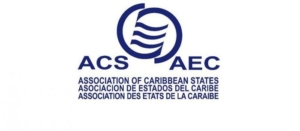The Convention Establishing the Association of Caribbean States was signed on July 24, 1994 in Cartagena, Colombia, with the aim of promoting consultation, cooperation and concerted action among all Caribbean countries. It has 25 Member States and seven Associate Members.
The objectives of the ACS are specified in the Convention and are based on the following aspects: strengthening the regional process of cooperation and integration in order to create a wider economic space in the region; preserving the environmental integrity of the Caribbean Sea, which is considered the common heritage of the peoples of the region; and promoting the sustainable development of the Greater Caribbean.
One of the priority areas of the ACS is Disaster Risk Reduction, which works to strengthen cooperation among the organisations in the region responsible for disaster planning and assistance. This enables the prevention and mitigation of risks with the aim of providing a knowledge base for prevention, education and planning to address the effects of disasters of natural origin.
The CARIB-COAST project, through its objectives of characterising current and future coastal natural hazards, is fully in line with the ACS missions, which will provide the project with the capacity to disseminate the results to Caribbean countries and to network experts on natural hazards.
The Mona GeoInformatics Institute of the University of the West Indies of Jamaica. MonaGIS serves as the GIS hub for the Mona Campus of the University of the West Indies. MonaGIS serves the campus by providing GIS courses for various departments and participating in research activities. Its areas of activity include Natural Hazards and Environment. It provides advanced mapping and modelling services for research programmes on coastal hazards (sea level rise, marine submersion) and monitoring coastal evolution.


